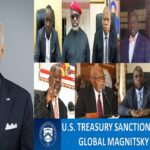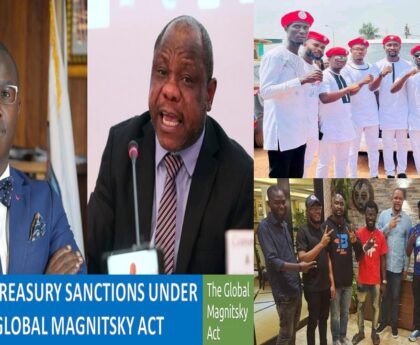In a press roundtable held at the U.S. Embassy in Monrovia, Liberia, on December 12, 2023, Charge d’Affaires Catherine Rodriguez addressed the media and congratulated the Liberian people on their successful presidential and legislative elections. She commended the nation for its commitment to democracy, emphasizing the significance of the peaceful and transparent electoral process. Rodriguez extended her congratulations to the winners and expressed appreciation for the professionalism displayed by the National Elections Commission (NEC).
Following the commendations, Rodriguez shifted the focus to the United States’ ongoing commitment to promoting accountability, upholding human rights, and combating corruption globally. She began by highlighting recent actions taken by the U.S. Government under the Global Magnitsky Human Rights Accountability Act and Section 7031(c) for visa restrictions. The sanctions targeted specific officials based on their individual actions, underscoring the Biden Administration’s dedication to addressing corruption and human rights abuses.
Rodriguez outlined the repercussions of these sanctions, explaining that individuals and their families sanctioned under Global Magnitsky would face a lifetime ban on using the U.S. banking system and visiting the United States. Similarly, those sanctioned under Section 7031(c) would be ineligible for entry into the United States, emphasizing the gravity of corruption and human rights violations.
Rather than delving into individual cases, Rodriguez redirected the conversation to the broader issue of corruption and its impact on the lives of ordinary Liberians. Drawing from conversations with local employees and citizens, she underscored the challenges faced by those who rely on their salaries to support extended family members. The perennial question of where tax money goes resonates with many, reflecting a common concern about the transparency and accountability of government spending.
Rodriguez highlighted the global nature of today’s world, emphasizing Liberia’s need to compete for business opportunities, foreign assistance, and international financing. She emphasized that government corruption could jeopardize the country’s fortunes in these arenas, affecting all Liberians.
Addressing the seemingly insurmountable issue of corruption, Rodriguez encouraged citizens to take action. Acknowledging Liberia’s existing institutions capable of investigating and prosecuting corruption, she stressed the need for consistent political will within the government to support and resource these entities effectively. Transparency in government operations and expenditure, she argued, is crucial for citizens to understand where their tax money is going.
Recognizing the media’s role as the fourth estate, Rodriguez commended the Liberian media for its essential role in promoting transparency. She urged journalists to report not only on important events but also on how government funding impacts the lives of ordinary citizens.
In conclusion, Rodriguez emphasized the necessity of swift and decisive action when corruption is uncovered. From minor incidents resulting in employee discipline to major cases necessitating prosecution, she argued that accountability is paramount. The Charge d’Affaires reaffirmed the U.S.’s commitment to Liberia as a longstanding partner and reiterated their dedication to the nation’s progress and development.
The press roundtable concluded with Rodriguez expressing her anticipation for questions from the media, emphasizing the importance of continued dialogue on these critical issues.




